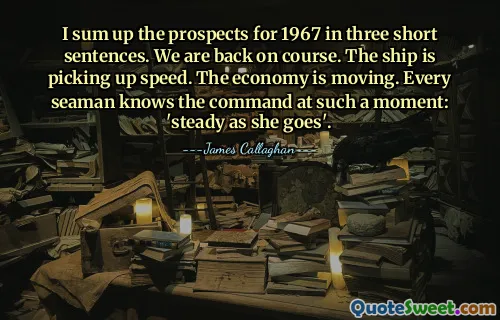James Callaghan was a British politician who served as Prime Minister from 1976 to 1979. He was a member of the Labour Party and held various government positions, including Chancellor of the Exchequer and Foreign Secretary, showcasing his extensive experience in governmental roles. Callaghan's leadership was marked by efforts to manage economic challenges and industrial unrest during his time in office. He became Prime Minister after Harold Wilson and faced significant difficulties, including a declining economy, high inflation, and increased strikes. Despite his efforts to address these issues, his government struggled to maintain stability, ultimately leading to his resignation and the end of Labour's post-war dominance for a time. His tenure is often remembered for its political and economic turbulence. James Callaghan's legacy is noted for his pragmatic approach to governance and dedication to public service. His leadership during a tumultuous period in British politics left a lasting impact, and he is recognized as one of the more experienced and steady figures in modern UK political history.
James Callaghan was born in 1912 in Portsmouth, England, and studied at Jesus College, Cambridge. He entered politics in the 1940s and quickly rose through the ranks of the Labour Party, known for his deep understanding of economic and foreign policy issues. His long career was characterized by a commitment to social justice and government service.
Throughout his political life, Callaghan was respected for his expertise and pragmatic leadership style. After serving as Prime Minister, he remained active in public life and was eventually made a life peer, continuing to contribute to political discussions. His career reflects a dedication to public service and navigating complex political landscapes with resilience and experience.
और देखें »
Today Birthdays
1955 -
Max Lucado
1946 -
John Piper
1842 -
William James
1907 -
Abraham Joshua Heschel
1887 -
Aldo Leopold
1755 -
Alexander Hamilton
1976 -
Alethea Kontis
1971 -
Mary J. Blige
1825 -
Bayard Taylor
1943 -
Jim Hightower
1885 -
Alice Paul
1923 -
Carroll Shelby
1928 -
David L. Wolper
1954 -
Kailash Satyarthi
1972 -
Amanda Peet
1946 -
Naomi Judd
1970 -
Malcolm D. Lee
1955 -
Christian Marclay
1973 -
Rahul Dravid
1987 -
Jamie Vardy
1942 -
Clarence Clemons
1992 -
Fatima Sana Shaikh
1948 -
Larry Harvey
1930 -
Rod Taylor
और देखें »
